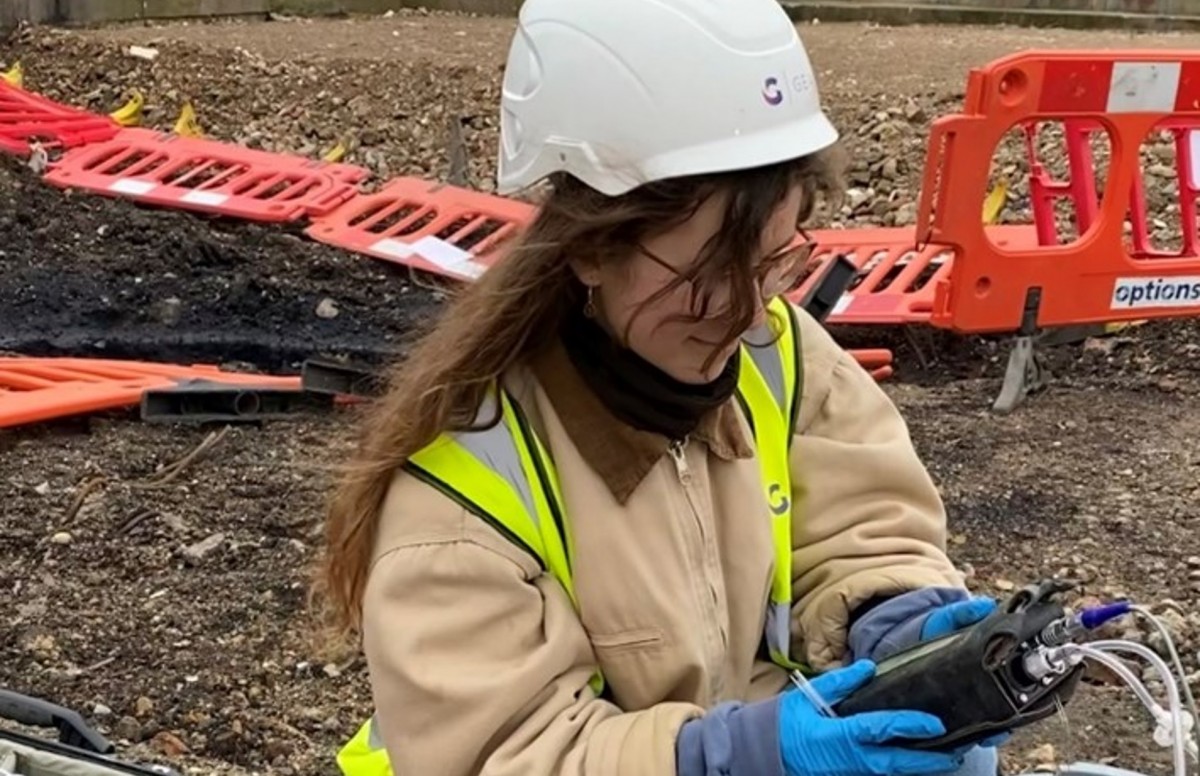Fascination About Geotheta
Fascination About Geotheta
Blog Article
The Ultimate Guide To Geotheta
Table of ContentsWhat Does Geotheta Mean?All about GeothetaGetting The Geotheta To WorkNot known Details About Geotheta An Unbiased View of Geotheta

They perform site investigations, accumulate examples, do research laboratory examinations, and analyze data to examine the viability of the ground for building and construction projects - Consulting Engineer. Based on their searchings for, geotechnical designers offer referrals for structure design, slope stability, preserving structures, and mitigation of geotechnical risks. They collaborate with other professionals, such as architects, structural designers, and construction teams, to ensure that geotechnical factors to consider are integrated into the total job style and application
By examining the behavior and properties of dirt and rock, they can identify potential geotechnical hazards such as landslides, soil settlement, or slope instability. Their proficiency helps avoid failures or crashes that might threaten lives and home. Below are some comprehensive obligations and responsibilities of a geotechnical designer: Website Examination: Geotechnical designers conduct website examinations to collect data on subsurface problems.
They translate the data to recognize the residential or commercial properties and habits of the dirt and rock, including their toughness, leaks in the structure, compaction qualities, and groundwater conditions. Geotechnical Evaluation and Style: Geotechnical engineers evaluate the information collected throughout website investigations to examine the security and viability of the site for building and construction tasks. They carry out geotechnical computations and modeling to assess elements such as bearing ability, negotiation, incline security, lateral earth pressures, and groundwater circulation.
Examine This Report on Geotheta
Foundation Design: Geotechnical designers play a critical function in designing structures that can safely support the designated structure. They analyze the soil conditions and tons requirements to determine the ideal structure type, such as superficial foundations (e.g., grounds), deep structures (e.g (https://yoomark.com/content/httpsgeothetacom)., stacks), or specialized strategies like soil enhancement. They think about factors such as settlement restrictions, bearing capability, and soil-structure communication to create ideal structure designs
They assess building strategies, monitor website activities, and conduct field examinations to validate that the style referrals are adhered to. If unexpected geotechnical problems develop, they analyze the scenario and give referrals for removal or modifications to the layout. Danger Analysis and Mitigation: Geotechnical designers assess geotechnical risks and risks related to the job site, such as landslides, liquefaction, or soil disintegration.

Partnership and Communication: Geotechnical engineers function carefully with various other experts associated with a job, such as engineers, structural designers, and building and construction teams. Effective interaction and partnership are essential to incorporate geotechnical considerations into the overall project layout and building and construction process. Geotechnical engineers provide technological competence, answer questions, and make sure that geotechnical requirements are satisfied.
What Does Geotheta Mean?
Right here are some kinds of geotechnical engineers: Structure Engineer: Structure engineers specialize in designing and assessing structures for structures. They assess the soil conditions, tons needs, and website attributes to establish one of the most suitable foundation type and style, such as superficial foundations, deep foundations, or specialized techniques like heap structures.
They review the elements influencing incline stability, such as dirt residential properties, groundwater problems, and incline geometry, and create strategies to avoid slope failures and reduce dangers. Earthquake Engineer: Earthquake engineers focus on evaluating and developing structures to endure seismic forces. They evaluate the seismic hazard of a website, review dirt liquefaction capacity, and create seismic layout standards to ensure the safety and strength of frameworks during earthquakes.
They perform area screening, gather samples, and evaluate the collected information to identify the dirt homes, geologic formations, and groundwater problems at a website. Geotechnical Instrumentation Engineer: Geotechnical instrumentation engineers concentrate on surveillance and measuring the actions of dirt, rock, and frameworks. They set up and preserve instrumentation systems that keep track of aspects such as soil settlement, groundwater degrees, slope movements, and architectural variations to examine performance and supply early warnings of potential problems.
The Ultimate Guide To Geotheta
They carry out tests such as triaxial tests, consolidation tests, direct shear tests, and permeability tests to collect data for geotechnical evaluation and design. Geosynthetics Engineer: Geosynthetics designers specialize in the style and application of geosynthetic products, such as geotextiles, geogrids, and geomembranes. They use these materials to boost soil stability, enhance slopes, provide drain solutions, and control erosion.
They often tend to be investigative people, which means they're intellectual, reflective, and investigative. They are interested, methodical, rational, analytical, and logical. Some of them are likewise social, indicating they're kind, charitable, cooperative, patient, caring, handy, empathetic, skillful, and pleasant - Geo Tech Engineer.
In the workplace atmosphere, geotechnical engineers utilize specialized software application devices to perform estimations, produce layouts, and assess information. They prepare records, evaluation project specifications, connect with customers and team members, and coordinate job activities. The office setup gives a conducive setting for study, evaluation, and partnership with other experts involved in the job.
Not known Facts About Geotheta
They frequently check out job sites to perform site investigations, assess geotechnical problems, and gather data for analysis. These visits entail traveling to different places, occasionally in remote or tough terrains. Geotechnical designers might carry out dirt sampling, conduct examinations, and display building and construction activities to make sure that the geotechnical facets of the task are being carried out correctly.
Geotechnical designers also function in specialized geotechnical research laboratories. In these centers, they carry out experiments, execute examinations on soil and rock samples, and examine the design properties of the materials. Geotechnical lab engineers work extensively in these settings, dealing with testing tools, running tools, and recording data. They collaborate with various other laboratory staff to ensure precise and trusted screening outcomes.
Report this page